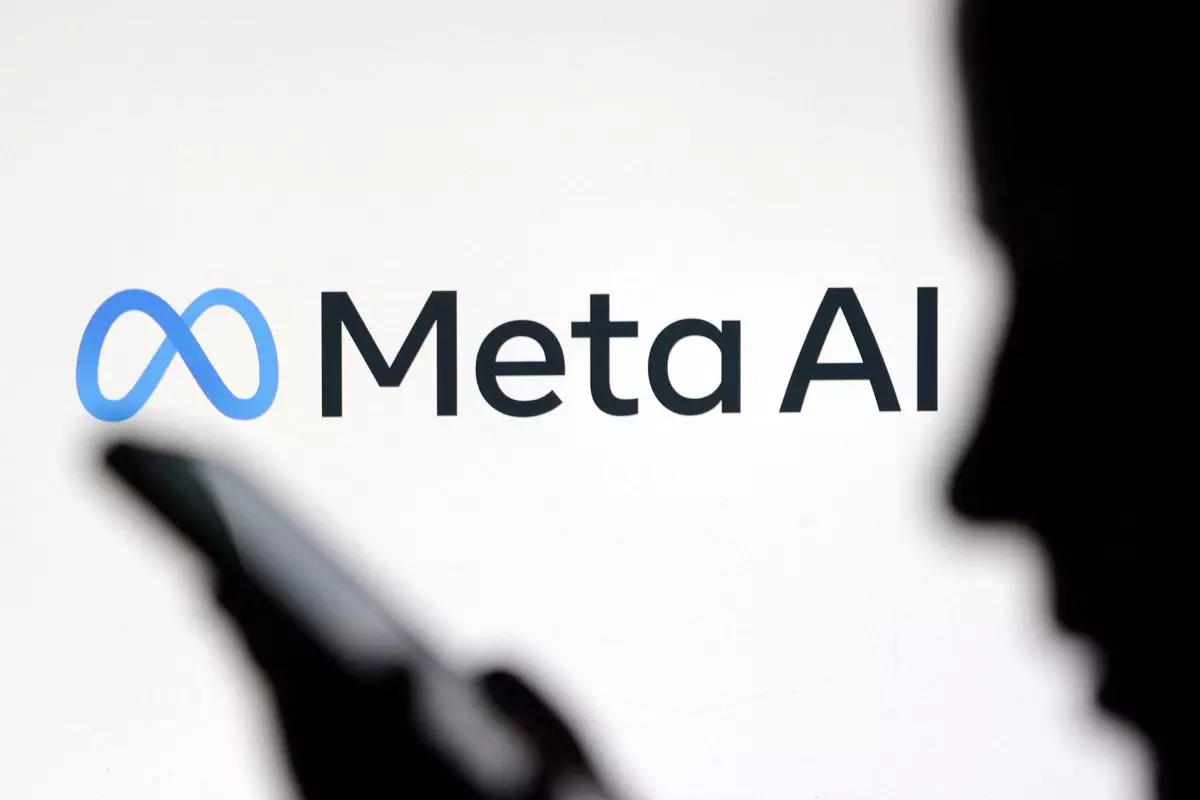In a significant move for the artificial intelligence landscape, Meta has unveiled a selection of new AI models, showcasing a commitment to advancing autonomous capabilities in machine learning. This announcement, made last Friday, introduces a notable innovation: the “Self-Taught Evaluator.” Designed to reduce the necessity for human intervention in the AI development process, this model could redefine how AI systems evolve and learn from their experiences over time.
Meta’s Self-Taught Evaluator builds upon the “chain of thought” methodology—a logical framework that dissects complex problems into manageable steps, thereby enhancing the accuracy of AI outputs. This technique, previously utilized in OpenAI’s models, enables AI systems to tackle intricate challenges across various domains, such as mathematics, coding, and scientific inquiries. By training the Evaluator exclusively on AI-generated data, Meta eliminates human biases and input at an early development stage, indicating a shift towards a more autonomous approach in AI systems.
The implications of this development are profound. The self-assessment capability of AI suggests the potential for machines that can independently recognize and rectify their mistakes, heralding a new era of intelligent digital agents. According to Meta researchers, this form of self-improvement is essential for achieving the “super-human” level of AI that the industry aspires to develop.
Traditional AI enhancement methodologies, such as Reinforcement Learning from Human Feedback (RLHF), demand substantial human oversight and expertise. Human annotators, tasked with labeling data and confirming the accuracy of AI responses, often slow down the development process and add layers of complexity. By contrast, Meta’s approach seeks to streamline this system, reducing reliance on human inputs by enabling AI systems to learn independently. Such a paradigm shift not only simplifies the training process but also has the potential to cut costs significantly.
As Jason Weston, one of the researchers involved in the project, aptly summarizes, the goal is to have AI that is more proficient at self-evaluation than the average human. This capability is crucial in moving toward genuinely autonomous AI, a vision shared by many industry experts.
Meta’s innovation is particularly relevant in the context of competition among tech giants. While other firms, such as Google and Anthropic, are exploring similar themes—in particular, the concept of Reinforcement Learning from AI Feedback (RLAIF)—they have generally opted against making their models publicly accessible. This decision contrasts with Meta’s approach, which encourages broader research collaboration and democratization of advanced AI tools.
In addition to the Self-Taught Evaluator, Meta has rolled out other tools, including updates to their Segment Anything model for image identification and enhancements that expedite response generation times for language models. These advancements signify Meta’s intention to create a robust ecosystem of AI-driven solutions that can facilitate research and development across various fields.
As Meta continues to push the boundaries of what is possible in AI by championing models that prioritize autonomous learning and self-evaluation, the potential for technological advancement is vast. These innovations signal a shift not just in framework but in philosophy regarding machine intelligence—one where AI systems can adaptively learn and grow with reduced human oversight. As the field evolves, the collaboration between AI entities and their human counterparts will undoubtedly redefine the parameters of intelligence, creativity, and innovation in our digital future.

